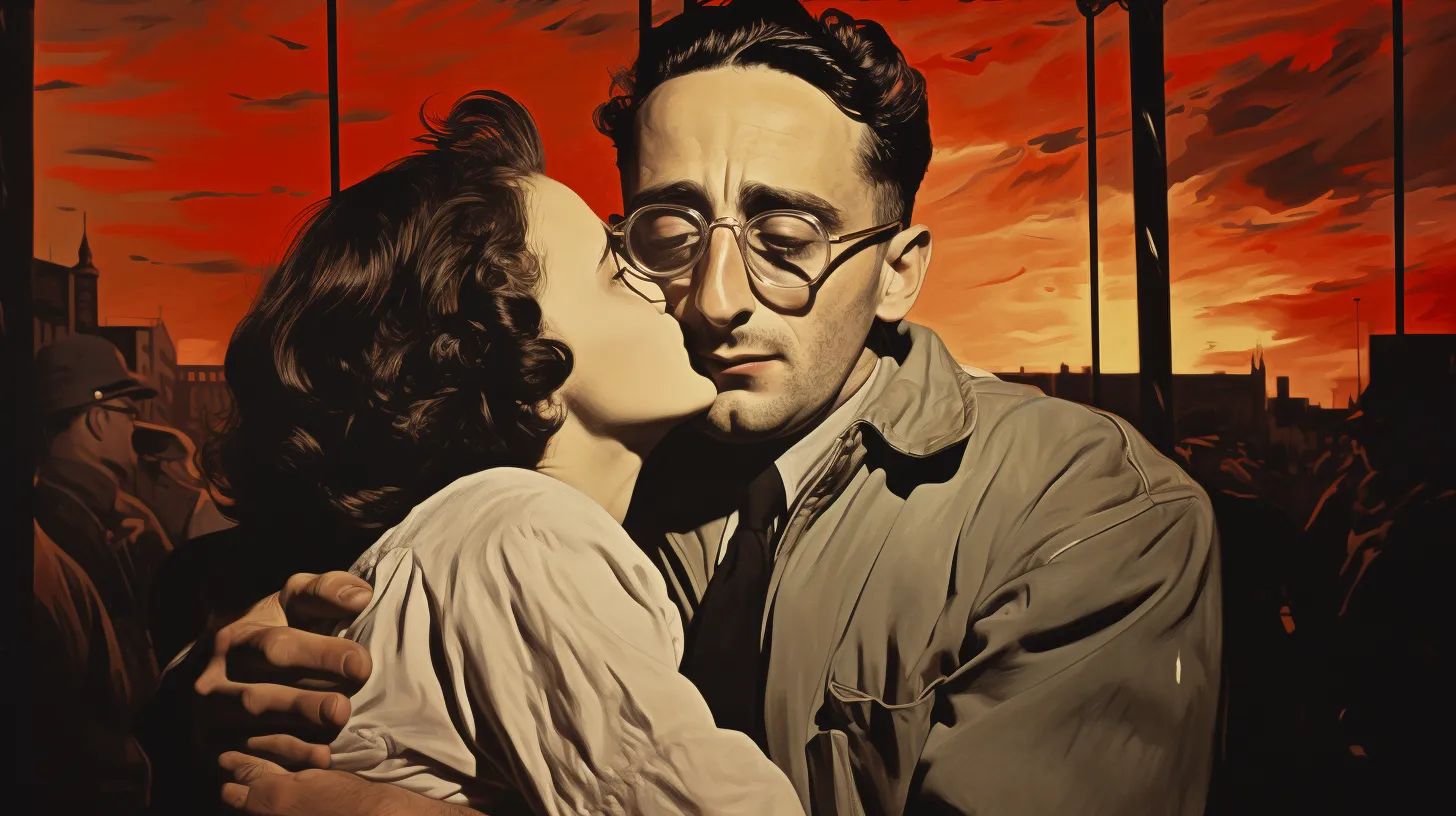
I truly expected more from the estimable Francine Prose, whose New Yorker pieces exemplify intellectual rigour and a lively feminism. (Witness her commentary on the bizarre cancellation of Elizabeth Gilbert’s upcoming novel due to the fear of upsetting certain people.)
The cover of The Vixen is certainly provocative. An archival photo of Julius and Ethel Rosenberg embracing, deeply kissing each other, despite his being in handcuffs. But Prose let me down.
She spends a few chapters introducing our narrator, a young man fresh out of grad school who lands a job at a literary agency. After he’s been slogging along for a few months, his boss offers him the opportunity to edit a potboiler novel based on the Rosenbergs. The scene occurs on page 46. His boss has chosen the title The Vixen, The Patriot and The Fanatic. The young man asks if this was the author’s choice. No, it was not. The boss says “Our author wanted to call it The Burning. Yes, that was it. The Burning. Dear boy, are you feeling all right? You’ve gone quite pale.”
At this juncture, the narrator tells the reader that “’The Burning’ was the title of my undergraduate thesis about Njal’s saga.”
The problem with this statement, and with the repetition thrice of the words The Burning in this scene, is that it really pissed me off. Because I already KNEW that! Because I am a person who reads carefully!
Because on page 3, the narrator had already told me that he had “graduated from Harvard, where I’d majored in Folklore and Mythology. I’d written my senior thesis on a Medieval Icelandic saga.”
Then on page 25, I’d learned that while at university, the narrator had met with a much admired professor who told him “While you are at college, you must study ‘The Burning’.” And as he left that meeting, the narrator asked the pretty assistant what “The Burning” was, and she answered “Obviously…Njal’s Saga.”
And on the next page, the narrator says “I read other sagas but I kept going back to that one. Why did I like it best? I wrote my senior thesis about it, as if the answer would emerge if I only read the text more closely and wrote about it at greater and greater length.”
So I really resented how this dumb-down robbed me of the satisfaction of solving the puzzle for myself, cheated me of the rewards of careful reading. As soon as the boss mentioned The Burning, I’d thought “Aha!” All the explanation that followed merely confirmed what I had already figured out for myself. How irritating.
A few years back, I clipped an article from Canadian Notes and Queries, titled Why People Read Shitty Books, written by Brett Alexander Savory. The focus of his piece is the blockbuster The Da Vinci Code, but he makes some trenchant observations that apply not only to genre fiction but also to literary fiction. Complex characters, a minimum of exposition and this: “For the love of Pete, don’t overexplain: let the reader figure things out. As a writer, you’re not there to hold their hands and make sure they understand every little thing you’ve done. The worst thing a writer can do is treat the reader like a seven-year-old.”
Amen to that, I say.
(from CNQ Winter/Spring 2011)




